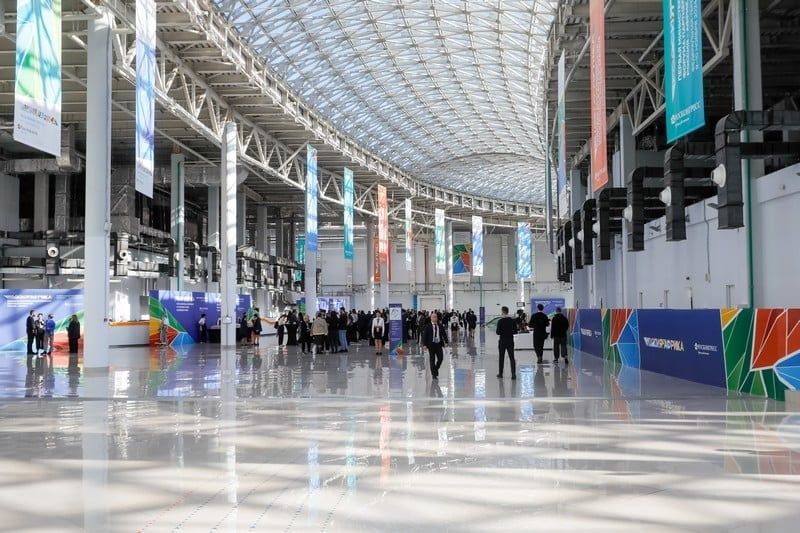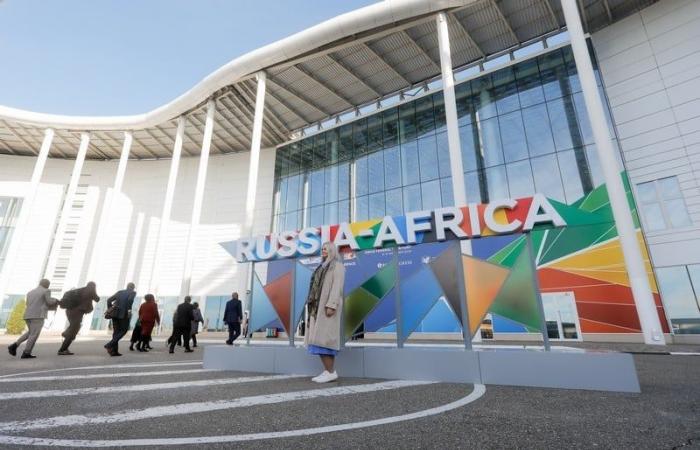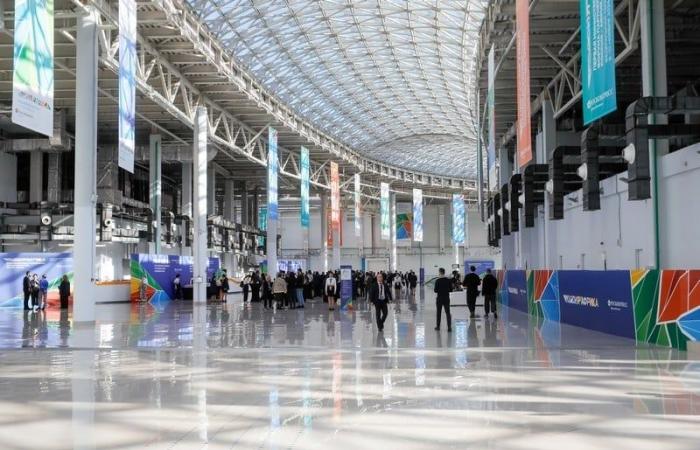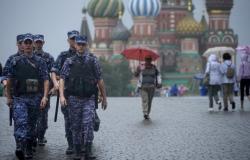The city of Sochi was the scene of the first ministerial partnership forum between Russia and Africa. The event is marked by the notable and noted absence of the Polisario front. This exclusion, far from being fortuitous, illustrates Moscow’s subtle strategy aimed at cultivating strong alliances with key states on the continent, while avoiding unrecognized entities that could compromise its geopolitical ambitions.
Far from the spotlight, this Russian choice sends a strong signal as to Russia’s position vis-à-vis contested territorial claims and regional political balances. As Moscow navigates a tense context of confrontation with the West, exacerbated by the war in Ukraine, Russian diplomacy seems to want to focus on solid state partnerships and avoid any potentially divisive factors.
Cooperation redefined in a tense geopolitical context
Moscow’s initiative comes at a time when its relations with the West are in crisis. Russian President Vladimir Putin and his Foreign Minister, Sergei Lavrov, are seeking to reposition Russia as Africa’s favored ally, a crucial strategy to counterbalance Western influence. The exclusion of the Polisario from the forum only reinforces this approach, underlining Russia’s desire to align itself with states whose international recognition is incontestable.
Lavrov’s meeting with Moroccan Foreign Minister Nasser Bourita on the sidelines of this forum also illustrates the importance that Russia attaches to the Kingdom of Morocco, a central actor in the region and a strategic ally in various areas, including fight against terrorism. While Morocco consolidates its position as an essential partner in Africa, Russia seems to want to capitalize on this dynamic to extend its influence.
One of the central themes of this forum was the fight against terrorism, a major issue for many African countries facing regional instability and cross-border threats. Several African countries have called for stronger collaborations to counter cross-border threats.
This approach resonates with Russia’s offer of security support and military expertise. Despite Western criticism which accuses Moscow of strengthening its military presence under the cover of partnerships, these agreements remain essential in a context of rising threats.
Russian-African cooperation in this area has been hailed as a model of security coordination, despite Western criticism which accuses Moscow of using its security commitments to strengthen its military and political presence in Africa. Nevertheless, security partnerships remain crucial in a context in which countries like Nigeria, those in the Sahel and other regions are experiencing a surge in terrorist attacks.

African borders and Moscow’s strategy
For Russia, which seeks to strengthen its presence on the continent, the emphasis placed on stability and border protection is an opportunity to establish a partnership based on respect for state sovereignty. This approach allows Moscow to strengthen its image as a respectful and pragmatic ally, ready to cooperate without direct interference, contrary to perceptions of certain Western interventions deemed intrusive.
This position could appeal to African countries wishing to diversify their strategic partnerships and escape the exclusive influence of Western powers. By offering technological solutions, military training and research and development partnerships, Moscow positions itself as a serious alternative for states wishing to strengthen their security autonomy.
The Sochi forum highlighted Russia’s desire to forge relations based on non-interference and mutual respect, a discourse that resonates particularly well in a continent marked by decades of often controversial external interventions. By emphasizing the need to respect the sovereign choices of African nations while proposing fair cooperation agreements, Moscow is strengthening its credibility and legitimacy as a strategic partner.

The exclusion of the Polisario, far from being a simple protocol detail, underlines Russia’s strategic approach which favors recognized state partnerships and avoids positions that could generate unnecessary tensions. For Moscow, the challenge is clear: consolidate lasting alliances and present a model of cooperation that fits into a generally peaceful framework, far from the ideological and political frictions that often characterize relations with the West.
In short, the Sochi forum illustrates the way in which Russia is redefining its relations with Africa, by playing on pragmatism and avoiding unnecessary tensions. The exclusion of the Polisario embodies this strategy aimed at strengthening lasting alliances and establishing Moscow’s influence on the international scene. This is just one example among others of how Moscow intends to play its card in Africa, by skillfully juggling pragmatism and strategy.







